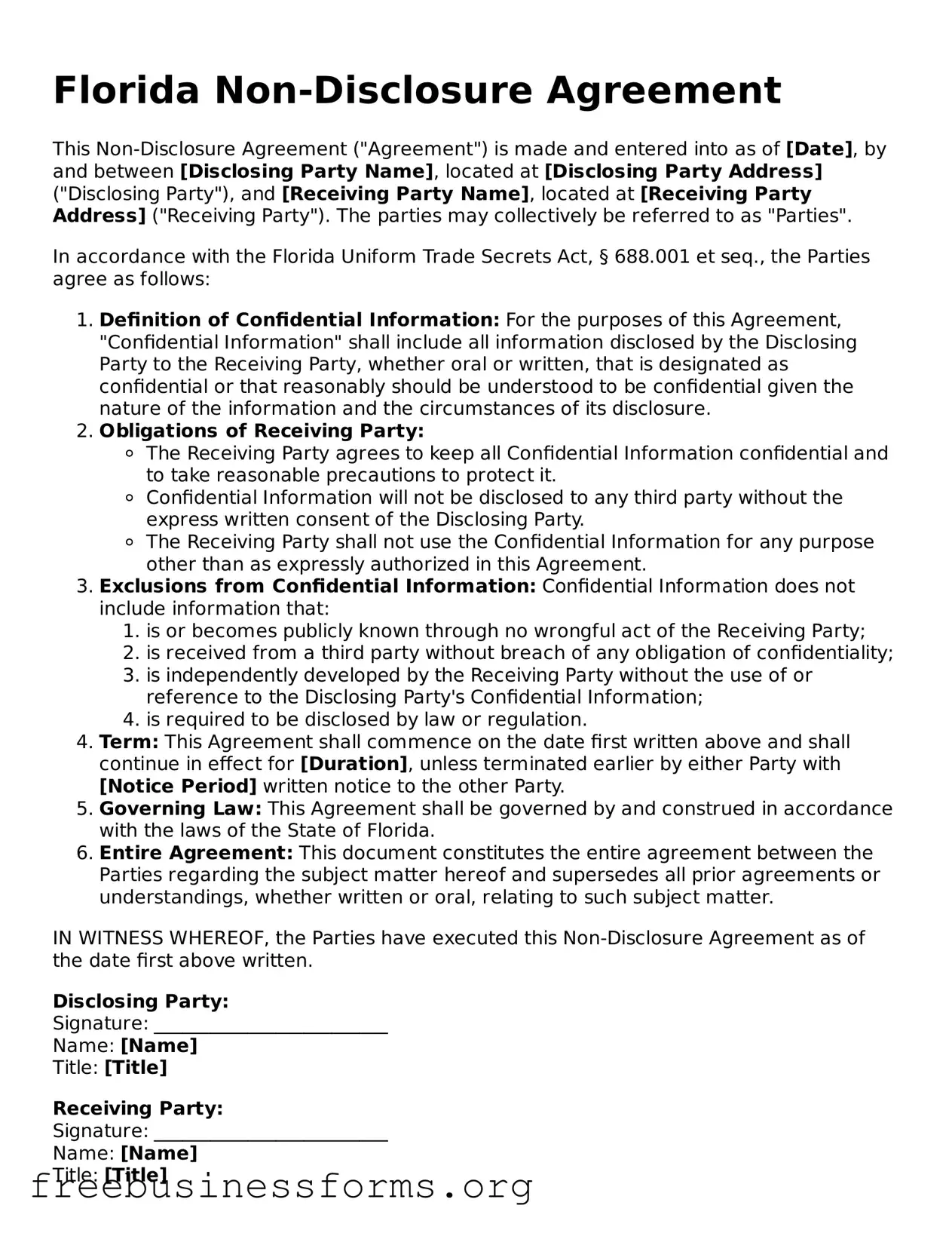Florida Non-Disclosure Agreement
This Non-Disclosure Agreement ("Agreement") is made and entered into as of [Date], by and between [Disclosing Party Name], located at [Disclosing Party Address] ("Disclosing Party"), and [Receiving Party Name], located at [Receiving Party Address] ("Receiving Party"). The parties may collectively be referred to as "Parties".
In accordance with the Florida Uniform Trade Secrets Act, § 688.001 et seq., the Parties agree as follows:
- Definition of Confidential Information: For the purposes of this Agreement, "Confidential Information" shall include all information disclosed by the Disclosing Party to the Receiving Party, whether oral or written, that is designated as confidential or that reasonably should be understood to be confidential given the nature of the information and the circumstances of its disclosure.
- Obligations of Receiving Party:
- The Receiving Party agrees to keep all Confidential Information confidential and to take reasonable precautions to protect it.
- Confidential Information will not be disclosed to any third party without the express written consent of the Disclosing Party.
- The Receiving Party shall not use the Confidential Information for any purpose other than as expressly authorized in this Agreement.
- Exclusions from Confidential Information: Confidential Information does not include information that:
- is or becomes publicly known through no wrongful act of the Receiving Party;
- is received from a third party without breach of any obligation of confidentiality;
- is independently developed by the Receiving Party without the use of or reference to the Disclosing Party's Confidential Information;
- is required to be disclosed by law or regulation.
- Term: This Agreement shall commence on the date first written above and shall continue in effect for [Duration], unless terminated earlier by either Party with [Notice Period] written notice to the other Party.
- Governing Law: This Agreement shall be governed by and construed in accordance with the laws of the State of Florida.
- Entire Agreement: This document constitutes the entire agreement between the Parties regarding the subject matter hereof and supersedes all prior agreements or understandings, whether written or oral, relating to such subject matter.
IN WITNESS WHEREOF, the Parties have executed this Non-Disclosure Agreement as of the date first above written.
Disclosing Party:
Signature: _________________________
Name: [Name]
Title: [Title]
Receiving Party:
Signature: _________________________
Name: [Name]
Title: [Title]

